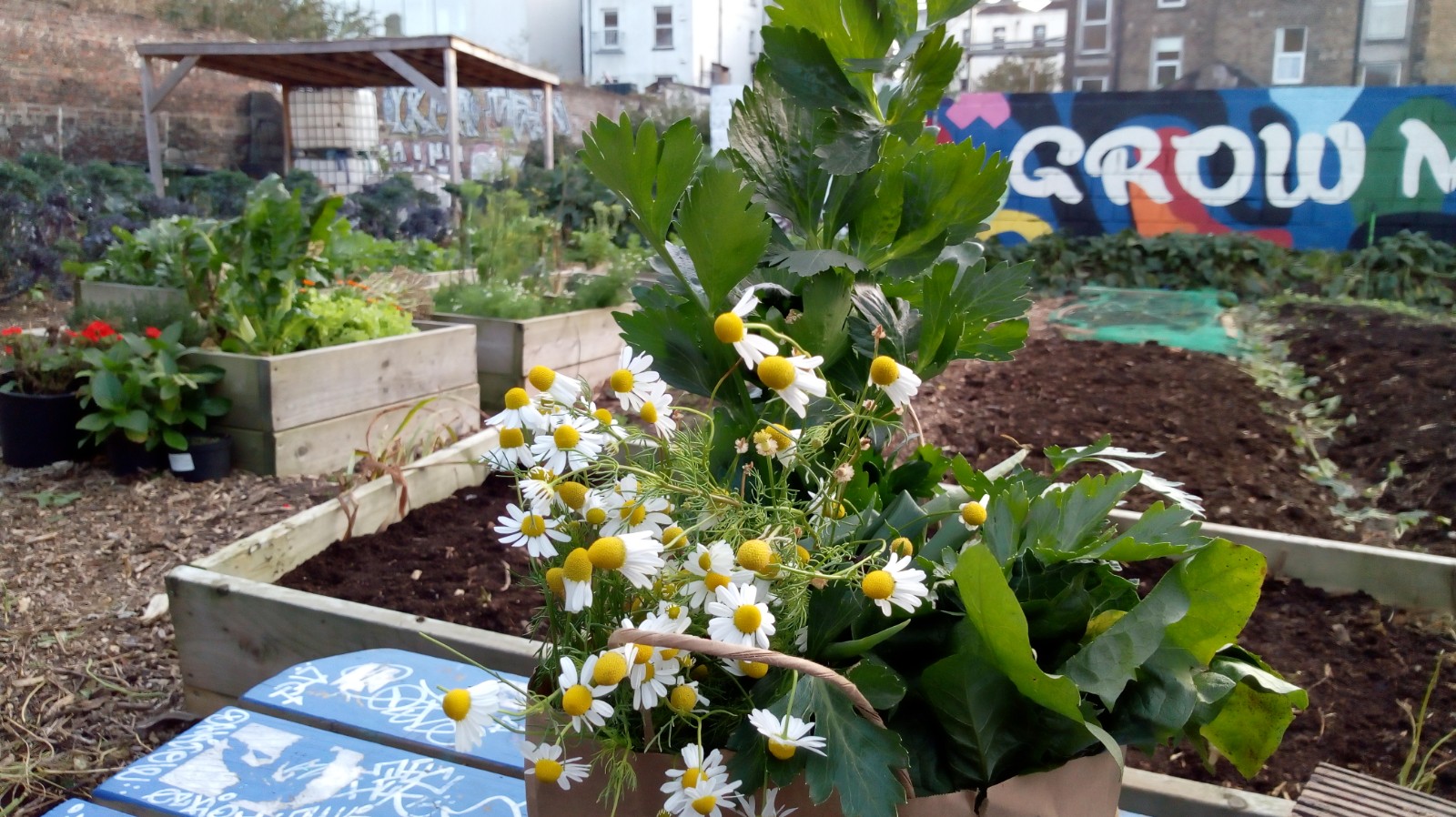This article was triggered by events that took place at the Community Garden located on Oliver Bond Street, Dublin 8 before Christmas 2017. Our petition and a background story can be found here.
The average person living in a city centre has very little interaction with actual soil: city dwellers spend most of their time outside walking on pavement while visually surrounded by a concrete jungle. Exposure to city green spaces typically takes the form of manufactured parks, managed by The City, that are suited to the frameworks for gentrification. That is why it seems obvious to me, that the following conversation relating to the Community Garden spaces in the Liberties neighborhood’s, would not be taking place if the spotlight was on a Community Garden in Ballsbridge.
Community Gardens in Dublin: the Current Model
The political lock out of the Oliver Bond Street Community Garden, is an excellent demonstration of how something that should be natural – plants, living outside, in their native environment; can turn into a disaster once people with zero compassion, respect, or knowledge for the health and wellbeing of the environment, see an opportunity to validate their ‘power-over’.
The current situation in Dublin regarding space concerns has manifested a ‘secret garden culture’ among Community Garden Growers and Inner-City Gardens.
These independent green spaces are being seized before they have the opportunity to fully blossom beyond the developmental phase because success in the form of social economy would increase a garden’s staying power. During the developmental stages these gardens are still malleable – their roots are not as strong and are therefore easier to weed out. This internal pressure to maintain Green Space autonomy has skewed public opinion on the value of Inner-City Gardening by deflecting the positive impact that these spaces can have on communities. How can the public truly understand and reap the long-term benefits from something that has never been allowed to come into full fruition?
What does this pattern really reflect? The Necessity for a shift in public opinion
At its core, the primary challenge for gardeners in Irish culture is a lack of public respect. This devaluation is an unusual condition that does not seem to exist in any other major European city. In Dublin, Community Gardens have been categorized as ‘substandard green spaces’ in an effort by the City to demean and add further fuel to the existing stigmatization that paints Community Gardens as no more than part-time, temporary hobby plots. As a result, there is no culture of Inner-City Community Gardening in Dublin.
Culture of Convenience
Removing the soil from produce has removed society’s connection to nature. The soil that gave life to the food you eat is commonly called ‘dirt’ and is seen as an inconvenience. We want produce that is “clean” and shiny.
Today’s supermarket shopping experience reflects the principles of a complacent nation, as it is no longer a sensory one. You cannot touch or smell half of the produce that you purchase if you shop in major supermarkets, because these products are pre-washed, and pre-packaged in plastic with a barcode to cater to you: the dis-engaged consumer, who expects an impersonal self-serve experience that is fast and easy. We live in a time where people expect instant gratification, and that often comes at an environmental cost.
Gardens take time and work – people are impatient. Culture of convenience is a culture of laziness and corporations have groomed and now cater to this model. As a result, many people have zero awareness of how to grow their own food due to the reliance they put on everyone BUT themselves. People no longer take responsibility for themselves because they no longer know how to trust themselves and this manufactured condition becomes more dangerous when detachment from self-sufficiency correlates to people unconsciously giving their personal power away.
Corporation stimulate demand in order to survive, and exert more power through the development of ‘hero worshiping’ (the corporation), which develops a victim mentality in the consumer. Linking back to independent spaces: if people are able to use Community Gardens to figure things out for themselves: experiment, learn, and generate ideas as solutions, then they can step back into their own personal power. Community gardens reflect creativity and rebellion and that challenges those that cling to the initials and titles next to their names.
Control
The space-race perception in Dublin is one that creates the notion that sharing is not possible. It suggests that because there is not enough room, that you can only have either housing or green spaces, not both. And because Community Gardens generally do not provide secure profit to the Council, they are the first to face extinction.
It is very important to make the distinction that the space issue is structural – and if The City maintains the attitude that Independent Green Spaces are not valuable, then they are communicating to the public, that the wellbeing of its citizens is insignificant, when in the same race as profit. By making a mockery out of Green Spaces in order to shape public opinion, The City is participating in environmental injustice – more specifically, food injustice
Community Gardens add a sense of “wildness” to a neighbourhood – plants can grow as they wish, people from all walks of life can equally come together and put their hands in the soil and get ‘dirty’; everyone is reminded that an object as small as a seed has the capacity and potential to grow into something more, when given the space and nourishment to expand and change. Community Gardens have endless potential just like the people involved in them – a simple reminder that it is the passionate people that make a city compassionate.




